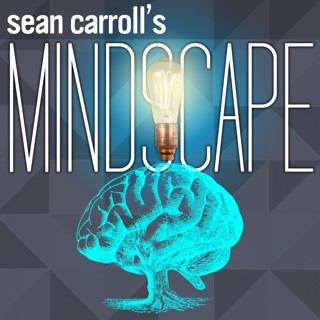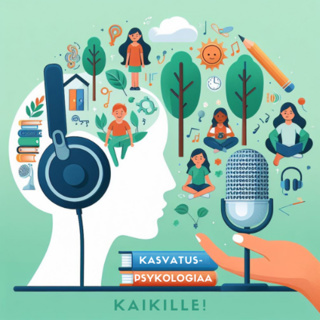
AMA | April 2025
Welcome to the April 2025 Ask Me Anything episode of Mindscape! These monthly excursions are funded by Patreon supporters (who are also the ones asking the questions). We take questions asked by Patreons, whittle them down to a more manageable number -- based primarily on whether I have anything interesting to say about them, not whether the questions themselves are good -- and sometimes group them together if they are about a similar topic. Enjoy!Blog post with questions and transcript: https://www.preposterousuniverse.com/podcast/2025/04/07/ama-april-2025/Support Mindscape on Patreon.A couple of links relevant to the intro:Tariff formula (Snopes)Tufts student nabbed by ICE (plus video)See Privacy Policy at https://art19.com/privacy and California Privacy Notice at https://art19.com/privacy#do-not-sell-my-info.
7 Huhti 20253h 30min

310 | Marc Kamionkowski on Dark Energy and Cosmic Anomalies
Cosmologists were, let us be honest, pretty stunned in 1998 when observations revealed that the universe is accelerating. There was an obvious plausible explanation, the cosmological constant proposed by Einstein, which is equivalent to a constant vacuum energy pervading space. But the cosmological constant was known to be enormously smaller than its "natural" value, and it seems fine-tuned for it to be so small but not yet zero. Once burned, twice shy, and since then we have been looking for evidence that the dark energy might not be strictly constant, even though that's even more fine-tuned. We talk to cosmologist Marc Kamionkowski about recent evidence that dark energy might be changing with time, and what this might have to do with the Hubble tension and other cosmic anomalies.Blog post with transcript: https://www.preposterousuniverse.com/podcast/2025/03/31/310-marc-kamionkowski-on-dark-energy-and-cosmic-anomalies/Support Mindscape on Patreon.Marc Kamionkowski received his Ph.D. in physics from the University of Chicago. He is currently the William R. Kenan Jr. Professor in the Department of Physics and Astronomy at Johns Hopkins University. Among his prizes are the Gruber Cosmology Prize, the Dannie Heineman Prize for Astrophysics, membership in the National Academy of Science, and a Guggenheim Fellowship.Johns Hopkins web pageGoogle Scholar publicationsWikipediaKamionkowski and Riess, "The Hubble Tension and Early Dark Energy"Dark Energy Spectroscopic Instrument paper and followupDark Energy Survey paperSee Privacy Policy at https://art19.com/privacy and California Privacy Notice at https://art19.com/privacy#do-not-sell-my-info.
31 Maalis 20251h 26min

309 | Christof Koch on Consciousness and Integrated Information
Consciousness is easier to possess than to define. One thing we can do is to look into the brain and see what lights up when conscious awareness is taking place. A complete understanding of this would be known as the "neural correlates of consciousness." Once we have that, we could hopefully make progress on developing a theoretical picture of what consciousness is and why it happens. Today's guest, Christof Koch, is a leader in the search for neural correlates and an advocate of a particular approach to consciousness, Integrated Information Theory.Blog post with transcript: https://www.preposterousuniverse.com/podcast/2025/03/24/309-christof-koch-on-consciousness-and-integrated-information/Support Mindscape on Patreon.Christof Koch was awarded a Ph.D. from the Max Planck Institute for Biological Cybernetics. He is currently a Meritorious Investigator at the Allen Institute for Brain Science, where he was formerly president and chief scientist, and Chief Scientist at the Tiny Blue Dot Foundation. He is the author of several books, most recently Then I Am Myself the World - What Consciousness Is and How to Expand It.Web siteAllen Center web pageGoogle Scholar publicationsAmazon author pageWikipediaSee Privacy Policy at https://art19.com/privacy and California Privacy Notice at https://art19.com/privacy#do-not-sell-my-info.
24 Maalis 20251h 20min

308 | Alison Gopnik on Children, AI, and Modes of Thinking
We often study cognition in other species, in part to learn about modes of thinking that are different from our own. Today's guest, psychologist/philosopher Alison Gopnik, argues that we needn't look that far: human children aren't simply undeveloped adults, they have a way of thinking that is importantly distinct from that of grownups. Children are explorers with ever-expanding neural connections; adults are exploiters who (they think) know how the world works. These studies have important implications for the training and use of artificial intelligence.Blog post with transcript: https://www.preposterousuniverse.com/podcast/2025/03/17/308-alison-gopnik-on-children-ai-and-modes-of-thinking/Support Mindscape on Patreon.Alison Gopnik received her D.Phil in experimental psychology from Oxford University. She is currently a professor of psychology and affiliate professor of philosophy at the University of California, Berkeley. Among her awards are the Association for Psychological Science Lifetime Achievement Award, the Rumelhart Prize for Theoretical Foundations of Cognitive Science, and a Guggenheim Fellowship. She is a past President of the Association for Psychological Science. She is the author of The Scientist in the Crib, The Philosophical Baby, and The Gardener and the Carpenter, among other works.Web siteLab web siteBerkeley web pageGoogle Scholar publicationsAmazon author pageWikipediaSee Privacy Policy at https://art19.com/privacy and California Privacy Notice at https://art19.com/privacy#do-not-sell-my-info.
17 Maalis 20251h 9min

AMA | March 2025
Welcome to the March 2025 Ask Me Anything episode of Mindscape! These monthly excursions are funded by Patreon supporters (who are also the ones asking the questions). We take questions asked by Patreons, whittle them down to a more manageable number -- based primarily on whether I have anything interesting to say about them, not whether the questions themselves are good -- and sometimes group them together if they are about a similar topic. Enjoy!Link to the 2012 Moving Naturalism Forward workshop, mentioned in the episode.Blog post with questions and full transcript: https://www.preposterousuniverse.com/podcast/2025/03/10/ama-march-2025/Support Mindscape on Patreon.See Privacy Policy at https://art19.com/privacy and California Privacy Notice at https://art19.com/privacy#do-not-sell-my-info.
10 Maalis 20252h 58min

307 | Kevin Peterson on the Theory of Cocktails
A lot of science goes into crafting the perfect cocktail. Balancing sweet and bitter notes, providing the right amount of aeration and dilution, getting it to just the right temperature and keeping it that way. And even if you have no interest in cocktails as such, the general principles extend to other activities in art and in life. I talk to scientist-turned-mixologist Kevin Peterson about how to think about the simple magic of a perfect drink.Blog post with transcript: https://www.preposterousuniverse.com/podcast/2025/03/03/307-kevin-peterson-on-the-theory-of-cocktails/Support Mindscape on Patreon.Kevin Peterson received a Ph.D. in Mechanical Engineering from the University of Michigan. He is currently co-owner of both Castalia (an experimental craft cocktail bar) and Sfumato Fragrances in Detroit, Michigan. He is the author of Cocktail Theory: A Sensory Approach to Transcendent Cocktails.Mindscape Petrichor Negroni (from the episode)1 part gin distilled from vetiver(alternative: herbaceous gin such as Moletto)1 part St. George Bruto Americano1 part Antica Formula vermouthStir over an ice cube, express with orange peel (not shown).See Privacy Policy at https://art19.com/privacy and California Privacy Notice at https://art19.com/privacy#do-not-sell-my-info.
3 Maalis 20251h 16min

306 | Helen Czerski on Our Energetic Oceans
It is commonplace to refer to the Earth's oceans as vast and largely unexplored. But we do understand some aspects, and improving that understanding is crucial to ensuring the continued viability and success of life on this planet. The oceans are a paradigmatic complex system: there are many components, distinct but mutually interacting, that add up to a nuanced whole. We talk with ocean physicist Helen Czerski about what the ocean is and how it's changing.Blog post with transcript: https://www.preposterousuniverse.com/podcast/2025/02/24/306-helen-czerski-on-our-energetic-oceans/Support Mindscape on Patreon.Helen Czerski received her Ph.D. in physics from the University of Cambridge. She is currently an Associate Professor at the Department of Mechanical Engineering at University College London. She is the author of several books, most recently The Blue Machine: How the Ocean Works. She is a frequent television presenter for the BBC and elsewhere.Web siteUCL web pageGoogle Scholar publicationsWikipediaAmazon author pageBlueskySee Privacy Policy at https://art19.com/privacy and California Privacy Notice at https://art19.com/privacy#do-not-sell-my-info.
24 Helmi 20251h 12min

305 | Lilliana Mason on Polarization and Political Psychology
Political outcomes would be relatively simple to predict and understand if only people were well-informed, entirely rational, and perfectly self-interested. Alas, real human beings are messy, emotional, imperfect creatures, so a successful theory of politics has to account for these features. One phenomenon that has grown in recent years is an alignment of cultural differences with political ones, so that polarization becomes more entrenched and even violent. I talk with political scientist Lilliana Mason about how this has come to pass, and how democracy can deal with it.Blog post with transcript: https://www.preposterousuniverse.com/podcast/2025/02/17/305-lilliana-mason-on-polarization-and-political-psychology/Support Mindscape on Patreon.Lilliana Hall Mason received her Ph.D. in political psychology from Stony Brook University. She is currently an SNF Agora Institute Associate Professor of Political Science at Johns Hopkins University. She is the author of Uncivil Agreement: How Politics Became Our Identity and co-author (with Nathan Kalmoe) of Radical American Partisanship: Mapping Violent Hostility, Its Causes, and the Consequences for Democracy.Web SiteHopkins web pageGoogle Scholar publicationsBlueskySee Privacy Policy at https://art19.com/privacy and California Privacy Notice at https://art19.com/privacy#do-not-sell-my-info.
17 Helmi 20251h 17min





















